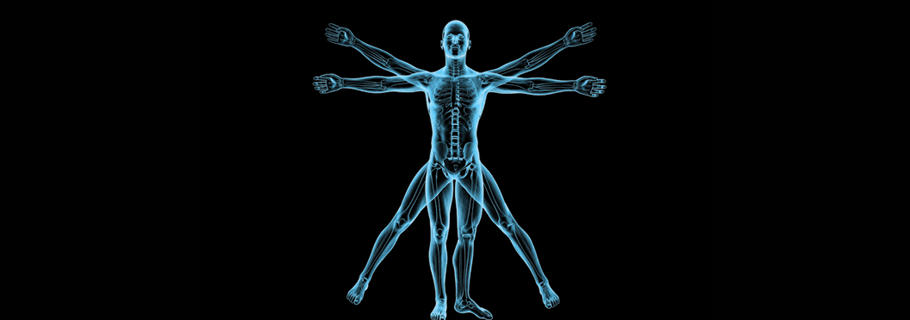I spent last weekend at a pair of conferences, each of which dealt in some way with matters of human sexuality. Such conferences are common today as Christians attempt to understand, interpret, and respond to the moral revolution raging around us. It struck me that just three or four years ago these events were discussing issues of marriage in the face of the likelihood that the institution of marriage would soon be opened to homosexual couples. For most people today that concern seems almost quaint, like debating whether women should be allowed to vote. The conversation has shifted so dramatically that the question today is whether there is any real meaning or significance in something as foundational to humanity as biological sex—a conversation we carry on as people begin to choose bathrooms and change rooms not on the basis of sex but of identity, of feelings rather than fact.
Of all the questions asked over the course of the weekend, there is one that stands out to me: Who does my body belong to? In some ways this question stands at the very heart of our cultural conversation. A speaker asked the question in one seminar but, because of time constraints, could offer only a partial answer. I’ve found myself pondering it in the days since.
I am to relate to my body as a grateful steward rather than an autonomous owner.
So, who does my body belong to? The Christian answer is obvious: My body belongs to God. In fact, my body is owned twice by God, once because he created it and again because he redeemed it. “I praise you, for I am fearfully and wonderfully made” (Psalm 139:14); “For you were bought with a price. So glorify God in your body” (1 Corinthians 6:20). God has the right of ownership and the right of redemption. I am to relate to my body as a grateful steward rather than an autonomous owner. This is my solemn responsibility, to gladly surrender my body to God, to use it in the ways he commands. I surrender it by denying myself forbidden desires or pleasures (1 Thessalonians 4:4), by pursuing the highest desires and pleasures (Proverbs 5:19, 1 Corinthians 7:1-5), and by my willingness to even see it destroyed in his service (2 Corinthians 11:25-29). God-followers have always placed great importance on using the body to procreate as a means of carrying out God’s creation mandate that we “fill the earth and subdue it” (Genesis 1:28). Understanding God’s ownership of the body not only limits behavior that God says is unworthy of his creatures, but promotes behavior that God says is good for his creatures.
Just pause for one moment to consider this kind of a world—a world in which each person glorifies God in his or her body all the time. This is the world of Genesis 1 and 2. The rest of the Bible and the rest of human history show with undisputed clarity that one of the consequences of sin is the selfish reclamation of our bodies. (A subsequent answer that I will not deal with at this time is that after God, my wife owns my body—see 1 Corinthians 7:1-5).)
Who owns my body? God does. There is another answer, though, and while it can easily be traced to a biblical understanding of the world, it is found even in cultures that have long since lost or denied God’s Word: My body belongs to my people, to my ancestors and descendants. People have traditionally had a strong sense of the unity of past, present, and future. And this was true—and still is true—for many cultures. I would be expected to honor my ancestors by carrying on the family line and I would be expected to honor my descendants by ensuring that there actually would be descendants. No horror could be greater than the horror of a family line coming to an end (see, for example, 1 Samuel 2:27-36). Thus my body belongs to the past and the future—it belongs to my people. This brings with it the responsibility to use my body to procreate, to create future generations. Even without reference to the God of the Bible, this sense of responsibility puts a kind of governor on human behavior that might cause me to turn away from certain desires in order to fulfill my familial and societal obligations.
Again, pause to consider this kind of a world. This may not be a Christian world, but it is still a world that understands the goodness of family and the stability the family unit brings to individuals and to all of society.
In a society obsessed with autonomy, personal rights, and total sexual freedom, my body belongs to me
And now we advance to modern Western society and we see that all limits and governors have been taken off—they’ve been taken off, thrown down, and stamped into the dust. Who does my body belong to? In a society obsessed with autonomy, personal rights, and total sexual freedom, my body belongs to me—to me and only me. I bear no responsibility to God because there is no God. Or even if I do acknowledge deity, the responsibility I bear to him is to be true to myself and to my own desires, for of course that is what he wants for me. I bear no responsibility to those who have come before me; their desires and sacrifices lay no obligation on me to ensure that there will be a generation who follows. The past is the past and the future is of no concern to me if it interferes with my joy in the present. My body is mine, thank you very much, and I owe it to myself to use it however I will.
Do you see how far we’ve come? The Bible says that my body belongs to God. Even Godless traditional societies will at least say that my body belongs to my people. But here and now my body belongs to me and it is outright bigotry for you to impose upon me any obligation to the contrary.
What do we do about this? The answer is simple: We obey God. As Christians, we celebrate the beautiful fact that we were each handcrafted by God, we have been bought with a price, and we now have the joyful responsibility and privilege of glorifying God in our bodies. We live in this way before a dark, selfish world and simply let God’s light shine.
Image credit: Shutterstock










